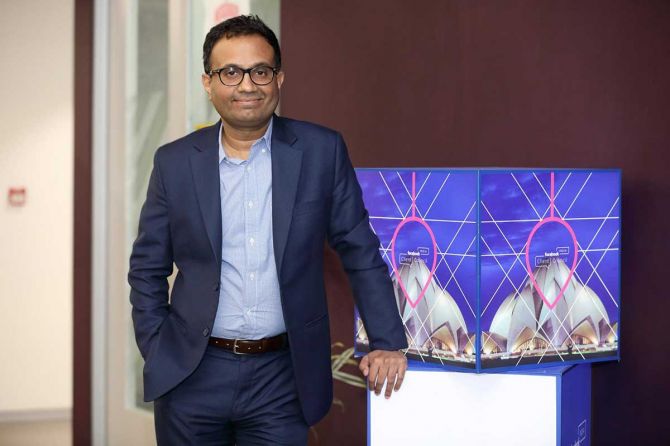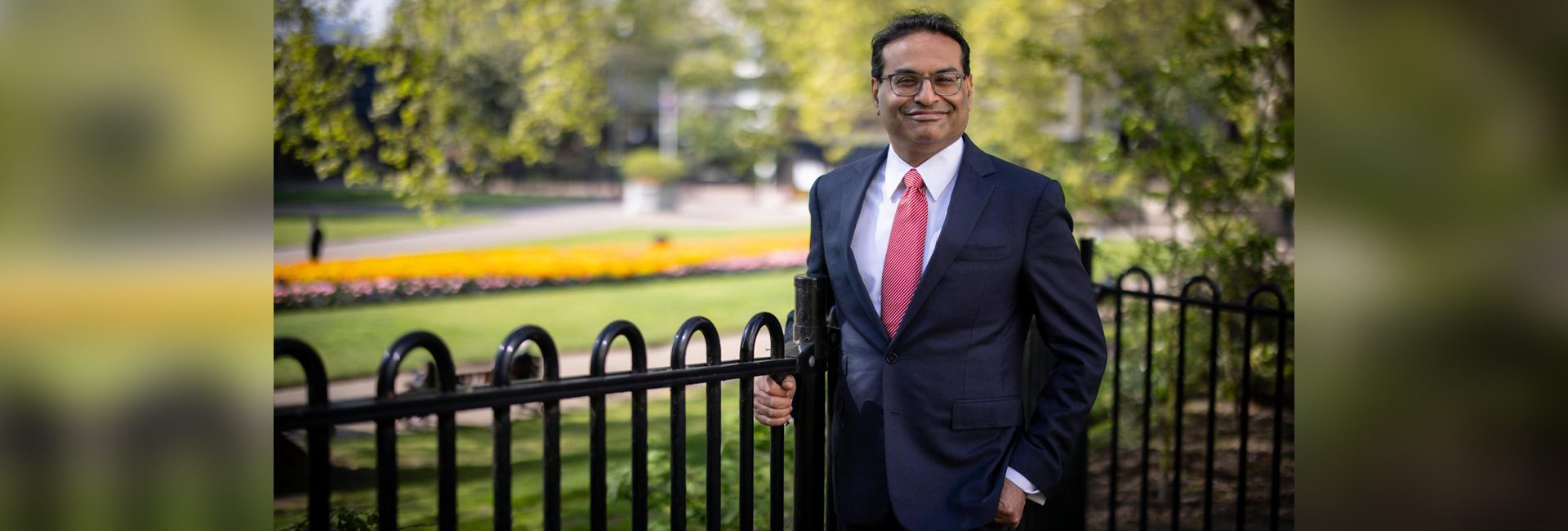(November 6, 2022) Ajit Mohan boarded a plane for the first time when he was 18-years-old, back in 1993, flying from Madras to Singapore. In a way, that flight was the turning point of his life – after graduating from Nanyang Technological University in Singapore, Mohan hasn’t looked back once. Three years after joining Meta as its India head, Mohan is back in the news as he stepped down with immediate effect, reportedly to join the rival social media platform, Snap, where he will head regional sales in the Asia-Pacific region and report to the company chief, Jerry Hunter. Global Indian takes a look at his journey.
The face of Meta India
In 2019, Ajit joined Meta as the managing director and vice-president of Facebook India. He was among those who galvanised the company’s massive presence in the country today, joining at a time when Facebook’s reputation in India was in desperate need of a makeover. A few years prior, the company had tried to elbow its way into the rural Indian market through Free Basics, a subsidised internet services package that quickly became a cause for outrage. With Mohan as the company’s new face, Facebook India went on to become a country unit, a standalone operation that reported straight to the headquarters in Menlo Park, California. WhatsApp and Instagram also added over two million users in the country.
After 2019, however, Facebook took on a much more compliant, desi avatar, more so with Mohan as the face of the company. It also began investing in tech startups, making its first minority investment in the world in Meesho, a social commerce company. “We would like to associate with startups that build tech capacity, impact economic growth, create jobs and improve women’s participation online,” Mohan told Manorama back in 2019. Tapping Indian women as entrepreneurs, employees and consumers became a priority for Facebook, with the number of Indian 4G users exploding from 30 million to a whopping 400 million in three years. The percentage of women was between 30 and 35 percent. At the time of his interview, Mohan said that the “Facebook family of apps has more than 325 million users in a month. WhatsApp has more than 400 million users a month. With Facebook App, Instagram and WhatsApp, we are growing really fast.”
From Travancore to the world
Born in Eloor, about 13-kilometres north of Kochi, Ajit Mohan grew up as the quintessential small-town lad. “My parents still live there,” he said, in the extensive interview with Manorama. His father, who had served in the Indian Air Force for 16 years in Signals Intelligence and took part in the 1962 India China war, went on to work in the Fertilisers and Chemicals Travancore Limited (FACT).
Mohan, who studied at a school in Udyogamandal, where his father worked, said, “My classmates were my friends. I knew their families. It was a cozy world. I knew everyone and everyone knew me. I barely travelled before that. I never left the country. The first flight I took was Madras (now Chennai) to Singapore. I arrived at a place that was diverse and multi-cultural.” Mohan thrived in this new, international atmosphere. One year after arriving at Nanyang, he ran for the students’ union and won the election. He was following a love for public policy, which he continues to do.
From there, Mohan took off to America, to Johns Hopkins University where he studied economics and policy, cofollowed by an MBA from the Wharton School. He began his career in 1997 and those early years took him to Malaysia, the US and Brazil as well. The Wharton School grad also worked at McKinsey & Co., where he dealt with media projects, working with film and TV studios, production and online gaming. “I remember travelling every day of the week at one point when I was based in the US,” Mohan told Livemint.
Building sustainable Indian cities to heading Hotstar
In 2008, when McKinsey Global Institute wanted someone to work on sustainable cities in India, Mohan grabbed the opportunity, returning to India to work on public policy. This included a stint with the then Ministry of Urban Development (now the Ministry of Housing and Urban Affairs), the Planning Commission and the International Centre for Research of Women. “My brother and I had grown up thinking we have to have some engagement with what’s going on at a larger level,” he says. Over the next two years, he also co-authored a book, India’s Urban Awakening: Building Inclusive Cities, Sustaining Economic Growth. He also wrote a column for the Wall Street Journal.
Then, in 2012, Ajit Mohan found himself in the big league, joining Hotstar as its CEO. He met the Star India CEO, Uday Shankar and TV magnate Ronnie Screwvala. “I hit it off with Uday. In an Indian context, I was unemployable at that time because I had only the McKinsey experience in India. Everything that made me unattractive for other people made me attractive for Uday,” he told Business Standard. He joined Star in 2.
At that time, Star had bought media rights to all international and domestic cricket played in India. In those early days, Mohan worked with the sports TV business. In June 2013, Starsports.com became something of a precursor to Hotstar, which was launched in 2015. It was a big deal – the Star TV owned company had the largest presence in India, much more than Netflix and Amazon, which had smaller operations here. For Mohan, the winner is decided by technology. The tech people are always given pride of place in his team – “right at the top of the hierarchy.”

Ajit Mohan
Leading Digital India
Digital media was nascent at this stage, although Hotstar went on to transform the way the country watched its favourite sport – cricket. He even introduced the WatchN’Play feature, which allowed users to watch cricket and play a game at the same time. And unlike the two big international competitors, Hotstar offered up a variety of streaming options, both local and international, as well as sports programming, that Netflix and Amazon simply couldn’t match.
The idea, at the time, was to refine the mobile user experience and create an immersive streaming experience. “India leapfrogged from having no access to a phone to having access,” he told Livemint. For many Indians, the experience of the internet came through mobile phones, in part also through Jio. At Meta, the purpose was greater, more equitable access, investing in tech startups that could make an impact and building Artificial Intelligence.
At home, Mohan’s kids have generous access to their iPads. “You can’t bring up a child disconnected to the world they are living in,” he said. Still, he’s grateful that there is no room for conversation about how much power tech companies should have and how much data-sharing is okay.
Mohan’s wife, Radhika Bansal, was a publisher at Harvard Business Publishing and went on to co-found Swishlist.in, an online rental company for designer brands for women. Mohan is also an art collector, likes cricket and plays tennis.


